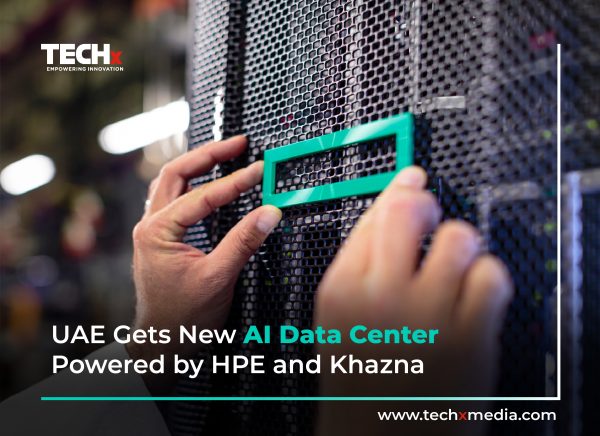
Hewlett Packard Enterprise (HPE) has introduced the UAE’s first managed data center hosting service with direct liquid cooling (DLC) for artificial intelligence (AI), in collaboration with Khazna Data Centers. This pioneering service is set to advance the UAE’s national AI strategy and enhance innovation by offering high-performance, energy-efficient computing resources.
The new data center, located in Abu Dhabi, is designed for high-performance computing (HPC) and AI, featuring end-to-end solutions including compute, accelerated compute, software, networking, and DLC. The DLC technology significantly improves energy efficiency compared to traditional air-cooling methods. By using liquid-based coolant, the data center achieves 20.7% higher performance per kilowatt and can reduce space requirements by up to 77.5%.
HPE’s investment supports the UAE’s efforts to manage rising power demands, which are expected to increase tenfold by 2026, according to the International Energy Agency. The new facility offers flexible scaling options through HPE GreenLake, enabling customers to adjust services and costs monthly.
“HPE is launching the UAE’s first DLC data center to make advanced HPC capabilities widely accessible for AI and other demanding workloads,” said Ahmad Alkhallafi, Managing Director, Emirates & Africa at HPE. “Our technology provides organizations with a responsible path to accelerate AI adoption while supporting the UAE’s environmental goals.”
Khazna Data Centers CEO Hassan Alnaqbi emphasized the role of this data center in driving initiatives across various sectors, including energy, finance, healthcare, and manufacturing, while promoting IT sustainability.
HPE’s expertise in liquid cooling is well-established, with the company responsible for 70% of the world’s top ten energy-efficient systems, according to the Green500 list. The new UAE data center aligns with the UAE government’s goal to reduce emissions and supports the country’s push towards a more sustainable economy.